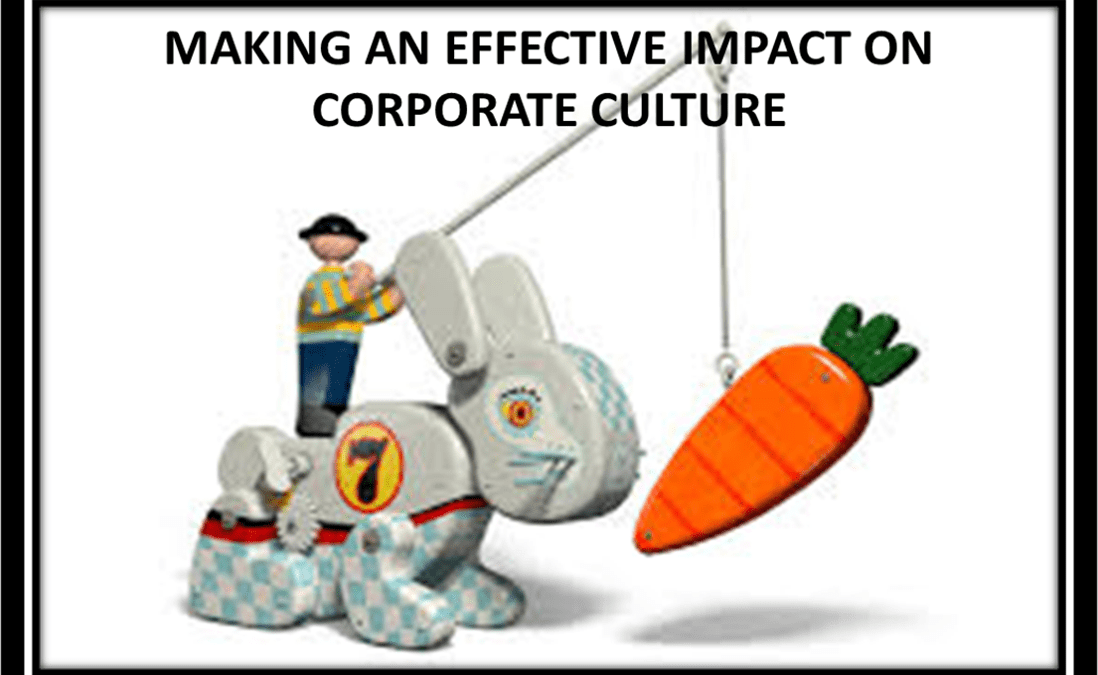MAKING AN EFFECTIVE IMPACT ON CORPORATE CULTURE – Part III
By André H. Paris, Brazil
Professor, Compliance Consultant and Lawyer. Partner – Oliveira Cardoso, Carvalho de Brito, Libardi Comarela, Zavarize & Antunes Coelho law firm
Continuing our series, we bring further examples on how companies may enhance its impact on corporate culture in the search of getting its compliance program “out of the paper”.
Nudges Toward Expected Behaviors
All humans have two ways of thinking, one of them is intuitive and automatic (automatic system), and the second way is reflective and rational (reflective system)– According with Richard H. Thaler and Cass R. Sunstein[1],
The authors share that despite the perception that we always use our reason when making decisions, a great deal of choices is not made using our reflective system, but in fact the automatic system is the one employed.
They also argue that most of the time the main system that is deciding for us is our automatic system. As compliance matters usually require more efforts and reflections from us, it is a subject that frequently is an issue to be solved by our reflective system[2]. But what to do if, instead, we are mostly choosing through our automatic system?
To help us answer this question some behavioral works, especially the ones conducted by the authors already mentioned in this paper and by Dan Ariely[3] on human (dis)honesty, are very enlightening.
“An Honesty Experiment”
Dan Ariely have conducted a series of experiments to assess if we are as honest as we think we are. During his experiments he employed multiple variables that could influence the outcomes of the trial performed, but the experiment core remained the same: a task was set to the participant and depending on their performance they would get less or more money.
If the participant answered more tasks correctly, he would receive more money than if he were not able answer that many tasks accurately.
And, to make things a little more interesting, Ariely would create in his experiment opportunities so that its participants could cheat to earn more money (for example by lying the number of correct answers that they got right).
In his experiments Dan Ariely found that the participants usually cheated (not too much[4], but cheated) when the opportunity to do so was given. Some variations of the initial experiment have important insights that can help companies influence positively in its employees’ behaviors and will be discussed below.
(Don’t) Show Me The Money
In one experiment variations, the researcher replaced the payment given in cash for plastic tokens[5]. The participants did not need to go very far to exchange the tokens earned for real cash (they just had to walk a few meters), nevertheless, Ariely verified that the outcomes revealed almost a 100% increase in cheating.
What does this variant indicate?
That people are more susceptive to dishonesty behaviors if they do not sense the monetary implications of their unethical conducts.
Take a time to think about the following questions: Would you take $5 from the company where you work? Instead, would you take (just a few) blank papers from the work printer because your daughter needs them to finish a late schoolwork?
Now think about this scenario:
if one of your colleagues, in a business trip, decides to pay not only for the food, but also for the two drinks (that costed around $30) that he had in a dinner one night with his corporate credit card, would you disapprove his conduct in the same way that you would censure if other of your colleagues steals $30 from a corporate account?
Maybe, without further reflection (from your reflective system) your intuition (led by your automatic system) would tend to see these examples of dishonesty in different ways.
What can a company do to reduce our day to day unethical behaviors?
As we saw, Ariely’s experiment exposed that people feel more comfortable to cheat if they do not perceive the monetary value their actions. Therefore, if a company is able to remind its employees of the economic value of the resources available (for example by putting signs near the organization’s assets that shows its monetary cost or an application that questions the user before start the printing requested – “The print requested will cost X dollars to the company, do you want to proceed?”) it should reduce the scale of resources misused.
In part III we talked about some factors that can influence a more ethical or unethical behavior, as well as shared some thoughts on how driving employees’ behavior towards honest conducts.In “Part IV” of our series we will share further examples on how companies may enhance its impact on corporate culture.
Sources:
[1] THALER, Richard H.; SUNSTEIN, Cass R. Nudge: Improving Decisions About Health, Wealth, and Happiness. Rev. and expanded ed. New York: Penguin Books, 2009, p. 29-32.
[2] According to the behavioral economist, Daniel Kahneman, the reflective system is the one that can identify and decide whether to follow or not follow a rule. The reflective system is the only one that is able to “make deliberate choices between options”. KAHNEMAN, Daniel. Thinking Fast and Slow. New York: Farrar, Strauss and Giroux, 2011.
[3] ARIELY, Dan. The (Honest) Truth About Dishonesty: How We Lie to Everyone – especially Ourselves. New York: Harper, 2012.
[4] For example, in one of his experiences the average increase on false communications of correct answers was only by two.
[5] ARIELY, Dan. The (Honest) Truth About Dishonesty: How We Lie to Everyone – especially Ourselves. New York: Harper, 2012, p. 28/33.
- Making an Effective Impact on Corporate Culture – Part V - March 17, 2021
- MAKING AN EFFECTIVE IMPACT ON CORPORATE CULTURE – Part IV - December 17, 2020
- MAKING AN EFFECTIVE IMPACT ON CORPORATE CULTURE – Part III - October 13, 2020


Stay connected